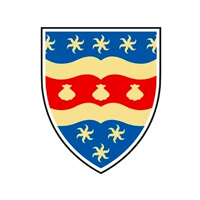fees waived
Marine Biology, BSc (Hons)
University of Plymouth, United Kingdom
Ranking in UK
Marine and Freshwater Biology
Oceanography
Biological Science
Costs
food & rent S$17K / year
Entry requirements
Scholarships
1 available
Unlimited quantity
Unlimited quantity
Unlimited quantity
Limited quantity
Information
Code
Code
Intakes
Website (External)
Programmes
Information
Duration
2028
This hands-on marine biology degree immerses students in the study of organisms from coastal margins to the deep sea, leveraging the University’s proximity to stunning coastlines and top-tier European facilities. Students explore the biology of diverse marine life, from microbes and algae to invertebrates, fish, and mammals, while examining impacts of climate change and pollution. The program builds practical, intellectual, and scientific skills through laboratory work, fieldwork, and access to research vessels, preparing graduates for careers in marine science.Ranked in the top 15 in the UK and top 100 globally for Earth and Marine Sciences (QS World University Rankings 2023), the course emphasizes experimental design and field skills. First-year modules cover biodiversity and oceanography, followed by second-year focus on data analysis and ecology along the Devon coastline. Options include international field courses, placements, and a final-year research project, enhancing employability through collaborations with renowned marine research organizations.
In your first year, you’ll get to grips with key biological and oceanographic themes, with topics ranging from biodiversity and ecosystems to evolution and microbiology. Through a mixture of lectures, small group tutorials, laboratory and fieldwork, you’ll begin to acquire skills that will boost your employability and help your career development. You’ll also benefit from a residential field course abroad, introducing you to the processes of scientific investigation, data collection and analysis. In your second year, you’ll sharpen your practical skills in the setting of the South Devon coastline, just minutes away. We’ll introduce you to methods for collecting, handling and analysing scientific data, as well engaging with the biology of marine organisms and the ecology of shallow water marine habitats. Depending on your choice of modules, you can receive training in underwater sampling and all students will explore experimental methods during a field course that currently takes place in Portugal. During your optional third year, you’ll have the opportunity to do a work placement, for a six or 12-month period. Your final year of study provides the opportunity for you to focus on your chosen areas of interest. You’ll conduct an extensive personal research project, applying the skills and methods you've learned. You’ll also choose from a range of modules that are driven by the research interests of our staff, again giving you the opportunity to specialise and tailor your work towards your career goals, while studying at the cutting edge of marine biology. The modules shown for this course or programme are those being studied by current students, or expected new modules. Modules are subject to change depending on year of entry and up to date information can be found on our website.
A local representative of University of Plymouth in Singapore is available online to assist you with enquiries about this course.

